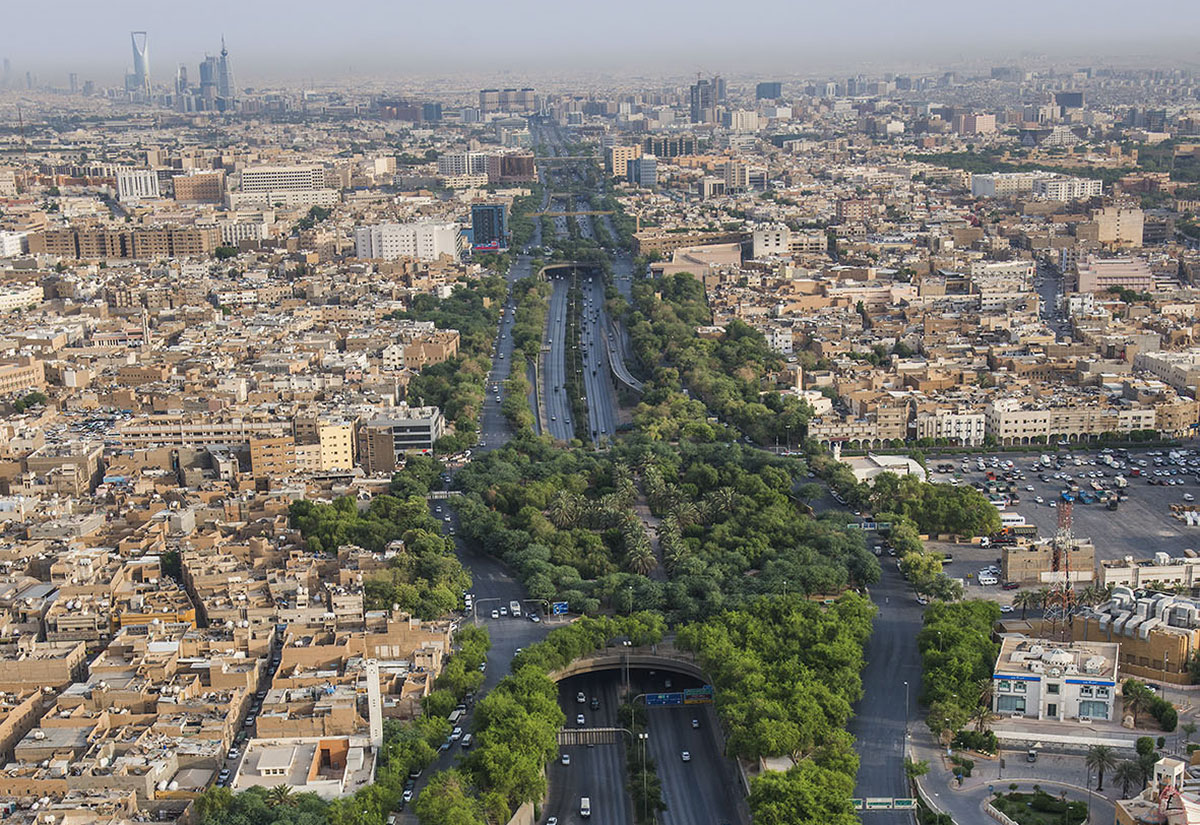Can Riyadh become one of the world’s 10 largest city economies?
Crown Prince Mohammed bin Salman says Saudi Arabia will announce a new development plan for its capital city

Saudi Arabia's King Salman in 2019 launched four wellbeing projects costing $23 billion for Riyadh including Sports Boulevard.
Crown Prince Mohammed bin Salman has announced that Saudi Arabia will announce a new development plan for Riyadh as part of its efforts to make it one of the world’s 10 largest city economies.
Riyadh represents about 50 percent of the non-oil economy in Saudi Arabia while the cost to create jobs in the city are 30 percent less than the other cities of Saudi Arabia, he said.
“All of Riyadh’s features set the groundwork for job creation, economic growth, investment, and many more opportunities,” he said in a conversation with Senator Matteo Renzi, former Prime Minister of Italy at the Fourth Edition of the Future Investment Initiative on Thursday.
“We are therefore aiming to make Riyadh one of the 10 largest city economies in the world – today it stands at number 40… We also aim to increase its residents from 7.5 million residents today to around 15-20 million residents in 2030.”
With cities represending 85 percent of global economic, “true growth begins in the city, whether in terms of industry, innovation, education, services, or other sectors,” the crown prince, pictured below, said, adding: “I have no doubt that the world economies are not based on nations, but on cities.”

He said the cost of developing infrastructure and real estate is also 29 percent less than the other cities while the infrastructure in Riyadh is “already very well accomplished because of the sound management and planning”.
He added that Saudi Arabia also plans for a Green Riyadh program, with millions of trees being planted in the city to reduce temperatures and dust levels.
There are also plans to improve the environmental condition of the city and the province, as well as supporting other environmental projects in Saudi Arabia to be announced at a later date, he added.
Saudi Arabia’s King Salman in 2019 launched four wellbeing projects costing $23 billion for Riyadh, which aim to significantly improve the lives of its citizens and transform the city into one of the world’s most livable cities.
The four wellbeing projects – King Salman Park, Sports Boulevard, Green Riyadh and Riyadh Art – complement the Saudi Vision 2030’s Quality of Life Program.
The government will invest $23 billion, with the four projects offering opportunities worth $15 billion for the private sector to invest in the residential, commercial, recreational and wellness areas.

In addition to providing tens of thousands of new jobs, they will also contribute to an integrated approach to wellness, health, sports, culture and the arts, underpinned by a commitment to environmental sustainability, the statement added.
At 13.4 sq km, King Salman Park will be the largest city park in the world. Besides residences and hotels, it will feature a Royal Arts complex, theatres, museums, cinemas, sports venues, water features, restaurants and an 18-hole Royal Golf Course.
The park will also boast several landmark assets, including the Riyadh Fountains and a Vertical Garden.
Green Riyadh will increase the green cover in the Saudi capital with the planting of 7.5 million trees. This will help increase the city’s green cover from 1.5 percent of the total area to 9.1 percent, or approximately 541 sq km, by 2030.
Sports Boulevard will feature a 135km-long cycling track covering the city and the surrounding valleys, the first of its kind in the region while Riyadh Art will be the world’s single largest government investment in public art and will establish the city as “a gallery without walls” through an interactive public arts program.
With 1,000 art pieces curated through 10 separate arts programs and an annual arts festival, the project will feature large-scale art works and will have as its centrepiece an iconic installation that will be Riyadh’s 21st century landmark art statement.

Last week, Boston Consulting Group said in a report global cities are facing major problems with its transport systems as congestion and air pollution intensify the need for change.
The consultancy said the population of Riyadh is approximately 7.5 million, which equates to around one million cars on the roads daily.
According to the report, among the key drivers for Riyadh’s expected expansion are seven million potential new women drivers by 2025, the 35 percent of inhabitants currently under the age of 18 who will obtain drivers’ licences in the near future.
* This article has been modified from the original due to incorrect data supplied

No comments:
Post a Comment